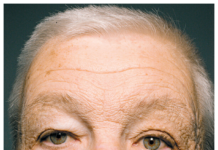A new guideline suggests that patients seeking help for mental health problems should be asked about gambling. Similar to being asked about drugs, alcohol, and smoking during
According to NICE (National Institute for Health and Care Excellence), people who visit the NHS in England for anxiety, suicidal or self-harm thoughts, and depression may have a possible addiction. For example, alcohol and drugs could pose a greater risk to gamblers.
NICE recommends asking questions about the patient’s gambling habits. This would ensure that they can cope with their thoughts or urges. Moreover, the guidance in the new draft suggests that patients are encouraged to assess the severity of gambling with the help of a questionnaire. Patients scoring 8 and above should seek treatment and support.
Other than seeking help, healthcare workers should discuss gambling-blocking software and also consider CBT. According to the NHS England data, around 14,000 individuals were referred to get help for gambling in 2021.
Interim Director of the Center for Guidelines NICE, Prof Jonathan Benger said,
Harmful gambling causes immense misery to all those who experience it. We want those needing help or who are at risk to be identified sooner and receive appropriate help.
NHS England has opened twelve gambling facilities since 2019 and aims to open at least fifteen as a long-term plan
Benger added,
The independent committee who made these draft recommendations included both clinicians and people with personal experience of harmful gambling. They scrutinised all the available evidence to identify treatments and therapies that have been shown to work and offer good value for money. The result is this useful and usable advice to help NHS clinics as they develop their service.
Fiona Macleod, the director of services at the charity GamCare, added that the guidance provided by NICE is important.
Identifying an issue with gambling as early as possible is vital to prevent harm from occurring later down the line, and we know that there is an important role that healthcare professionals can play in helping more people find the support they need.
We believe these recommendations, if implemented, will present a greater opportunity to prevent gambling harms from occurring in the UK. They represent an important step in encouraging more people to seek support, through services such as those GamCare provides.
Claire Murdoch, mental health director of NHS England, said,
Gambling addiction is a cruel disease that destroys people’s lives, and the NHS is already playing its part in treating it with four new specialist clinics opening in recent months and a further three opening later this year, so if you’re struggling, please come forward for help.
We will work with Nice on this consultation process and while this new guidance will ensure the NHS can help even more people struggling with gambling addiction to receive evidenced-based treatment, it is vital that the billion-pound industry also takes action in line with the government’s white paper to stop people coming to harm in the first place.
The government made plans to reform gambling, ensuring that it met regulations and challenges in April. Since 2005, the landscape has changed.




